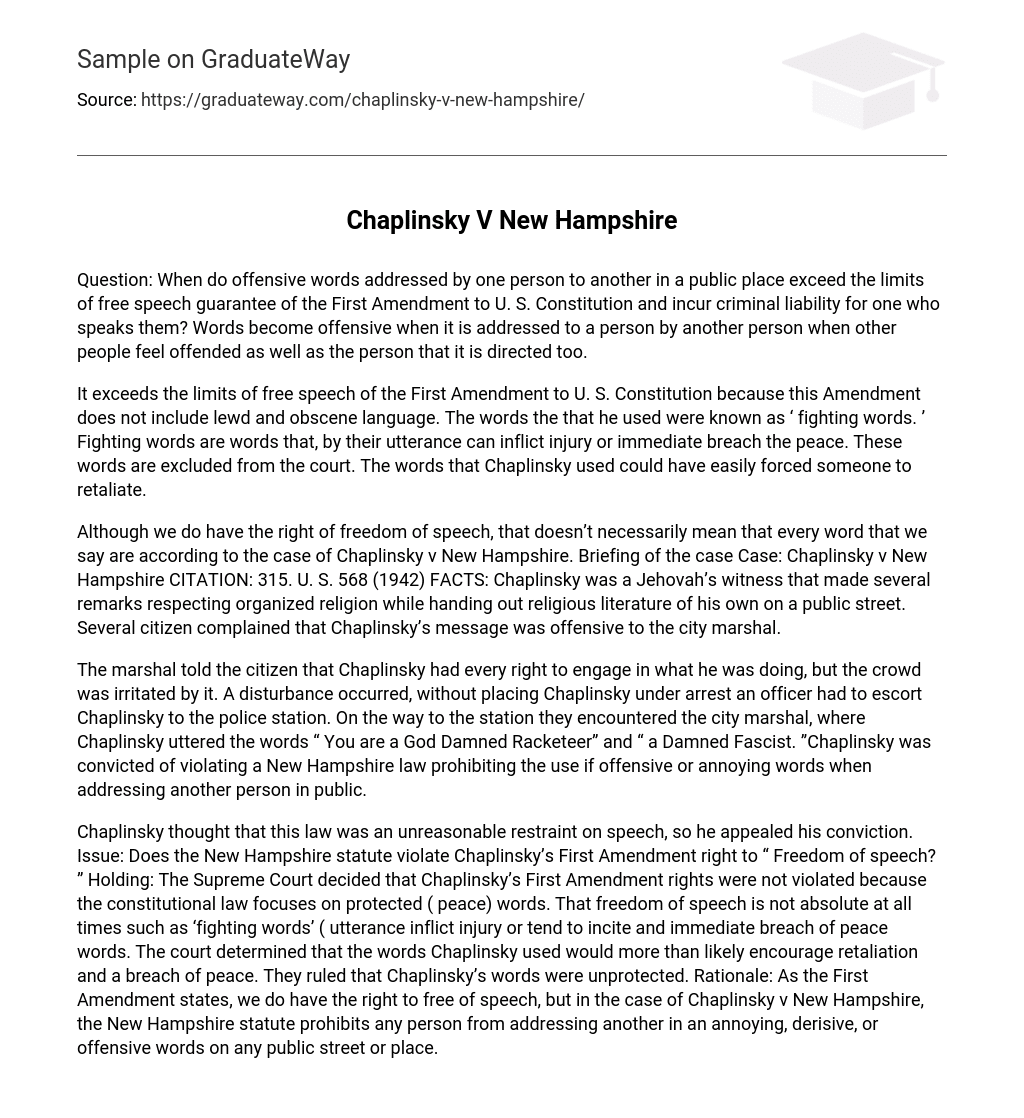Question: When do offensive words addressed by one person to another in a public place exceed the limits of free speech guarantee of the First Amendment to U. S. Constitution and incur criminal liability for one who speaks them? Words become offensive when it is addressed to a person by another person when other people feel offended as well as the person that it is directed too.
It exceeds the limits of free speech of the First Amendment to U. S. Constitution because this Amendment does not include lewd and obscene language. The words the that he used were known as ‘ fighting words. ’ Fighting words are words that, by their utterance can inflict injury or immediate breach the peace. These words are excluded from the court. The words that Chaplinsky used could have easily forced someone to retaliate.
Although we do have the right of freedom of speech, that doesn’t necessarily mean that every word that we say are according to the case of Chaplinsky v New Hampshire. Briefing of the case Case: Chaplinsky v New Hampshire CITATION: 315. U. S. 568 (1942) FACTS: Chaplinsky was a Jehovah’s witness that made several remarks respecting organized religion while handing out religious literature of his own on a public street. Several citizen complained that Chaplinsky’s message was offensive to the city marshal.
The marshal told the citizen that Chaplinsky had every right to engage in what he was doing, but the crowd was irritated by it. A disturbance occurred, without placing Chaplinsky under arrest an officer had to escort Chaplinsky to the police station. On the way to the station they encountered the city marshal, where Chaplinsky uttered the words “ You are a God Damned Racketeer” and “ a Damned Fascist. ”Chaplinsky was convicted of violating a New Hampshire law prohibiting the use if offensive or annoying words when addressing another person in public.
Chaplinsky thought that this law was an unreasonable restraint on speech, so he appealed his conviction. Issue: Does the New Hampshire statute violate Chaplinsky’s First Amendment right to “ Freedom of speech? ” Holding: The Supreme Court decided that Chaplinsky’s First Amendment rights were not violated because the constitutional law focuses on protected ( peace) words. That freedom of speech is not absolute at all times such as ‘fighting words’ ( utterance inflict injury or tend to incite and immediate breach of peace words. The court determined that the words Chaplinsky used would more than likely encourage retaliation and a breach of peace. They ruled that Chaplinsky’s words were unprotected. Rationale: As the First Amendment states, we do have the right to free of speech, but in the case of Chaplinsky v New Hampshire, the New Hampshire statute prohibits any person from addressing another in an annoying, derisive, or offensive words on any public street or place.





